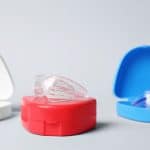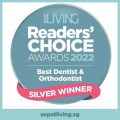Gum Disease Is More Critical Than You Think
Gum disease, also referred to as periodontal disease, is a widespread yet frequently underestimated oral health issue impacting millions globally. Although it is prevalent, many people remain unaware of its significant effects on both oral and general health. In February, we observe Gum Disease Awareness Month to increase awareness about this pervasive health issue affecting countless individuals worldwide.
What is Gum Disease?
Gum disease is a bacterial infection that affects the gums and supporting structures of the teeth. It typically develops in two stages:
- Gingivitis – The earliest stage of gum disease, characterized by red, swollen, and bleeding gums. Gingivitis is reversible with proper oral care.
- Periodontitis – A more advanced stage where the infection spreads deeper, causing gum recession, bone loss, and potentially leading to tooth loss if untreated.
Symptoms to Watch For
Gum disease can often progress silently, making it important to recognize early warning signs, such as:
- Persistent bad breath
- Red, swollen, or tender gums
- Bleeding while brushing or flossing
- Receding gums
- Loose or shifting teeth
How Your Gum Health Affects Your Overall Health
Teeth and Supporting Structures
Your gums are important! Here’s how it affects the various components of your teeth and supporting structures:
1. Gum Tissue (Gingiva)
- Healthy gums provide a protective seal around the teeth.
- In early-stage gum disease (gingivitis), inflammation causes redness, swelling, and bleeding.
- If left untreated, the gums pull away from the teeth, forming pockets where bacteria thrive.
2. Periodontal Ligament (PDL)
- This ligament connects the tooth to the jawbone, absorbing chewing forces.
- Advanced gum disease (periodontitis) weakens the PDL, leading to loose teeth.
3. Alveolar Bone (Jawbone)
- The jawbone supports and anchors the teeth.
- Severe periodontitis leads to bone loss, reducing tooth stability.
- Bone deterioration can eventually result in tooth loss if not treated.
4. Tooth Enamel & Root Exposure
- Receding gums expose the tooth roots, making them vulnerable to decay and sensitivity.
- Root exposure can lead to increased pain when consuming hot, cold, or sugary foods.
5. Tooth Mobility & Loss
Gum disease is the leading cause of tooth loss in adults!
- As gum disease progresses, teeth become loose due to ligament and bone damage.
- In severe cases, teeth may need to be extracted or fall out on their own.
Diseases Linked to Oral Health
Your mouth acts as a gateway to the rest of your body, hosting over 700 different types of bacteria. While many of these bacteria are harmless or even beneficial, the story changes if gum disease enters the picture. Harmful bacteria can slip into your bloodstream and journey to other parts of your system, posing potential health risks.
- Heart disease: Individuals with periodontal disease are 25% more likely to develop heart disease
- Diabetes: Poor oral health is linked to a 30% increase in the risk of developing diabetes
- Infections: Oral infections are associated with a 20% higher risk of respiratory infections
- Stroke: People with gum disease have a 2-3 times higher risk of having a stroke
- Dementia: Individuals with poor oral health have a 50% higher risk of developing dementia
- Arthritis: Oral health problems are associated with a 25% increase in the risk of developing rheumatoid arthritis
Gum Disease Prevention
By embracing straightforward daily routines and choosing mindful lifestyle habits, you can greatly enhance your oral hygiene and, in turn, your overall health. This is vital for groups more prone to gum disease, including children, teens, older adults, pregnant individuals, and those with chronic health conditions. Below are some easy tips to safeguard both your oral and overall well-being:
- Choose a comprehensive dental provider – When choosing a dentist, ask about their approach to whole-body health, personalized care, and treatments.
- Practicing good oral hygiene – Brush teeth at least twice a day with fluoride toothpaste, floss daily, and visit the dentist at least twice a year for a professional cleaning and exam.
- Adopt a balanced diet – Nutrient-rich foods such as fruits, vegetables, whole grains, lean proteins, and dairy products, can provide essential vitamins and minerals that strengthen teeth and gums while also supporting overall bodily functions.
Have you had your dental clean and exam in the last 6 months? Book an appointment at our Novena Dental Clinic today!
1.According to data from the CDC, nearly 50% of adults aged 30 and older have some form of periodontal disease, with statistics showing around 42% of adults in this age group experiencing periodontitis.







